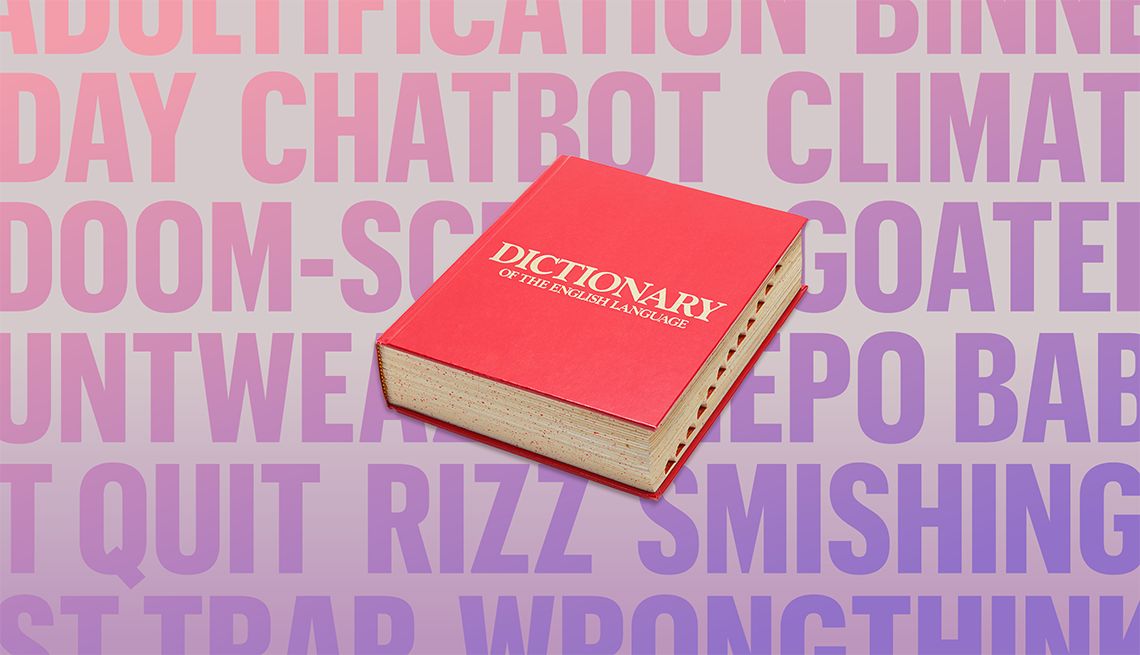AARP Hearing Center


As our culture evolves, so does our language. In response, dictionaries regularly add new words and expressions — including the 38 mentioned below. Each was added within the last year to either the Oxford English Dictionary (OED); Dictionary.com (D), which uses the Random House Unabridged Dictionary as a source; or Merriam-Webster’s Collegiate Dictionary (MW). Some of the words and phrases can be found in multiple dictionaries.
Many additions make perfect sense — the OED added the meteorology term “derecho” (“A line of violent and sustained windstorms formed in association with a rapidly moving band of thunderstorms…”), for example.
Others are strange but interesting, such as Dictionary.com’s inclusion of “shower orange,” which (who knew?) is “an orange that is peeled and eaten under a steamy shower, the purported benefit being that the steam enhances the orange’s citrusy fragrance and creates a soothing experience for the person who is showering.” Other notable additions to English-language dictionaries:
adultification, n.: “the action or practice of treating children or young people like adults in ways that are considered harmful or abusive” (OED)
binned, adj., colloquial: “put or thrown into a dustbin or wastepaper basket. Now often figurative (of a person or thing): rejected, discarded, or abandoned” (OED)
Blursday, n., informal: “a day not easily distinguished from other days, or the phenomenon of days running together” (D)
Chumocracy, n.: “a culture characterized or dominated by influential networks of close friends” (OED)
chatbot, n.: “a computer program designed to respond with conversational or informational replies to verbal or written messages from users” (D)
cheffy, adj.: “characteristic of or befitting a professional chef (as in showiness, complexity, or exoticness)” (MW)
climate refugee, n.: “a person who has had to flee their home due to the negative effects of climate change” (D)
coffee nap, n.: “a short nap, usually 15-30 minutes, taken immediately after drinking a cup of coffee, the claimed benefit being that the energizing effect of caffeine may be bolstered by a sleeping body’s drop in adenosine levels” (D)































































More From AARP
Members Only Access
Ina Garten Protégée Lidey Heuck Debuts Approachable Cookbook
‘Cooking in Real Life’ encourages cooking at any skill level
Books
Books Preview: 28 of Spring’s Top Reads
David Baldacci, Stephen King, Salman Rushdie, Tana French, Erik Larson and more authors with new releases this season
Books
What to Read This Month and Other Book News
A brilliant new take on a Mark Twain classic, Neil Gaiman sells his stuff, and Gabriel García Márquez resurfaces
Recommended for You